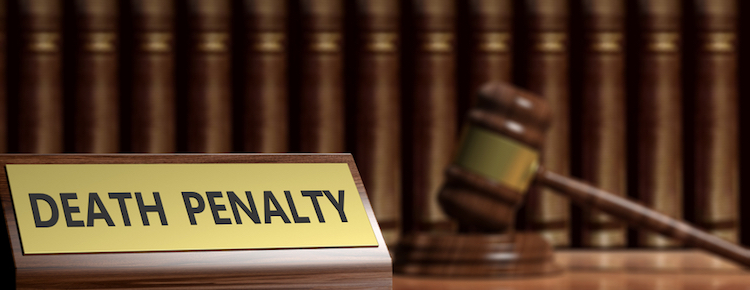Alabama inmate may be first person to be executed this way

The Alabama Supreme Court has authorized the state to use nitrogen to execute a man for his role in a 1988 murder-for-hire killing of a pastor’s wife. Image from Shutterstock.
An Alabama inmate may be the first person in the United States to be executed with the use of nitrogen asphyxiation.
The Alabama Supreme Court authorized the state to use nitrogen to execute Kenneth Eugene Smith for his role in the 1988 murder-for-hire killing of Elizabeth Dorlene Sennett, a pastor’s wife, report Reuters, AL.com and the Alabama Reflector.
The state failed to carry out Smith’s execution Nov. 17, 2022, after executioners were unable to insert an intravenous line before the death warrant expired, according to a motion filed with the state supreme court by Republican Alabama Attorney General Steve Marshall.
The court order said Republican Alabama Gov. Kay Ivey should set the execution date.
That victim’s pastor husband killed himself when the investigation began to focus on him as a suspect who hired the killers, according to the motion.
Smith was one of the people hired to carry out the crime. He told police that he was at the scene but denied participating in the killing.
Smith was twice convicted in the case. The second time, in 1996, jurors voted 11-1 to recommend a sentence of life without parole. A judge overrode the recommendation and imposed the death penalty. The state didn’t abolish judicial override until 2017 and did not make the change retroactive, according to the Alabama Reflector.
Smith’s lawyers said nitrogen execution is untested and may violate the constitutional ban on cruel and unusual punishment. In a statement to AL.com and the Alabama Reflector, they noted that two Alabama justices dissented from the order authorizing the nitrogen execution.
“We remain hopeful that those who review this case will see that a second attempt to execute Mr. Smith—this time with an experimental, never-before-used method and with a protocol that has never been fully disclosed to him or his counsel—is unwarranted and unjust,” the lawyers said.
Hat tip to How Appealing.
Write a letter to the editor, share a story tip or update, or report an error.



